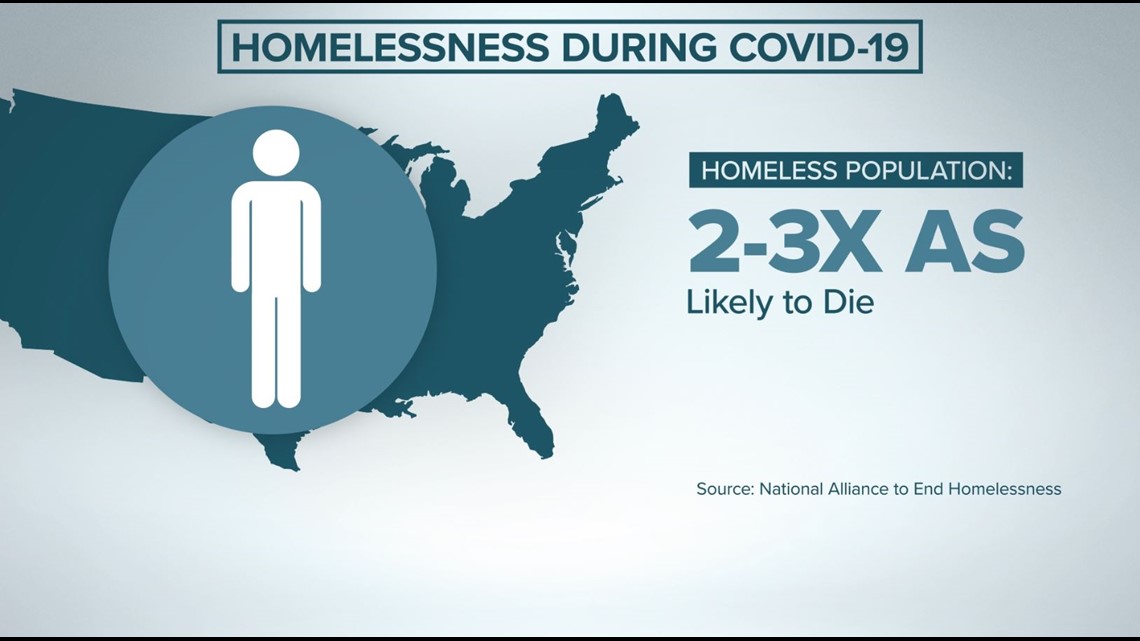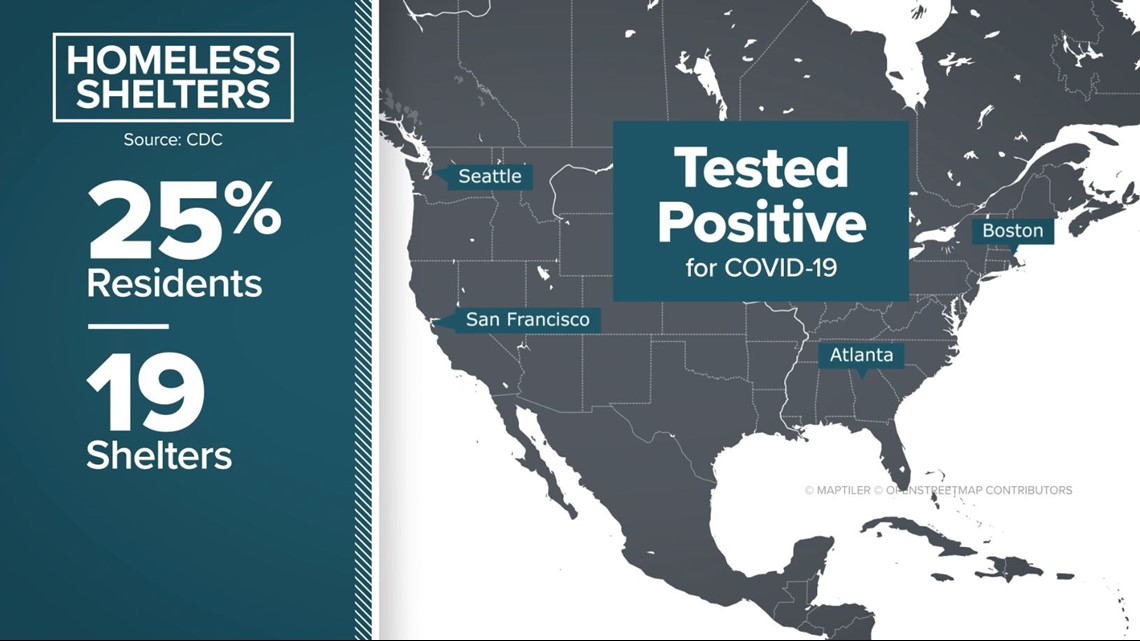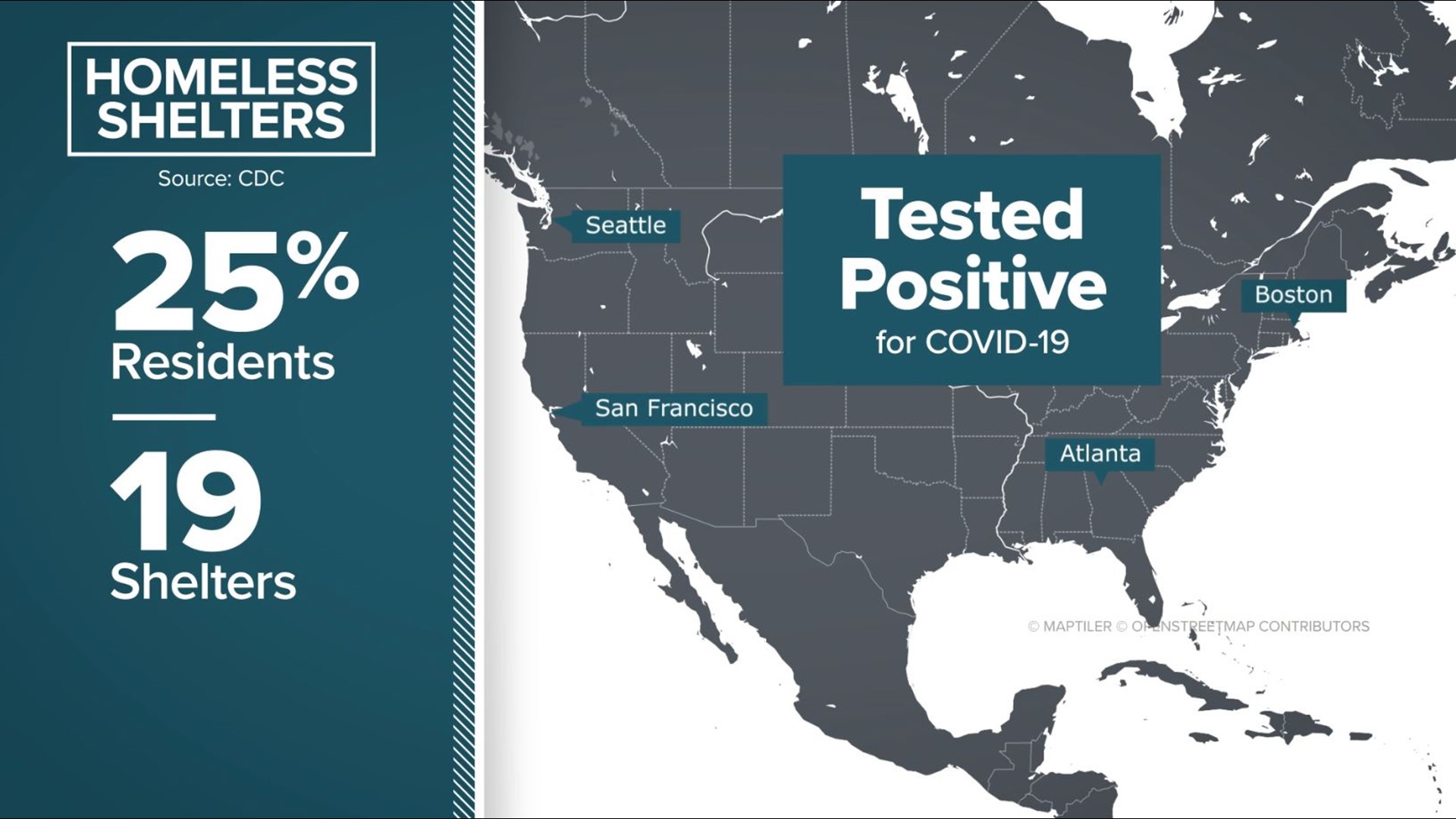ATLANTA — As the pandemic continues, health officials are urging everyone to stay home. But not everyone has that option. A vulnerable population who already struggles daily to keep themselves healthy and safe are the homeless.
In the United States, an estimated 575,000 people are homeless on any given night.
Ronnie Smith is living in a homeless encampment outside of Charlotte, North Carolina.
“I was working forty-five, fifty hours a week at a job in the epicenter downtown, and the minute Governor Cooper said ‘take out only’ - we all got furloughed,” Smith said.
He said COVID-19 brought him back to square one.
“There are people like myself who really try hard,” he said. “It’s like the cards are stacked against us, you know.”
RELATED: Atlanta's homeless seek shelter at airport; Officials say 'isolation facility' close to opening
A national report found those experiencing homelessness are twice as likely to be hospitalized due to COVID-19, and two to three times more likely to die than the general population.


With more and more tent cities popping up nationwide, many homeless fear coronavirus outbreaks at shelters.
“An outbreak occurs among the homes, it’s going to spread like wild fire,” said homeless advocate Marshall Rancifer.
In Boston, Seattle, San Francisco and Atlanta, 25 percent of residents in 19 shelters tested positive for COVID-19.
Eric Sheptok is staying in a shelter in D.C. and said his bed is eight and a half feet away from somebody who tested positive for the virus.
“There’s a shortage of PPE, and the city's not really coming through to make sure that shelters have enough PPE,” Sheptok said.
The federal CARES Act allocated $4 billion to homeless assistance. The act encourages states to spend the money on additional beds, staffing and supplies. Still, many volunteers said they are struggling to meet the growing need.
“We’ve gone from feeding six-hundred people a week to eighteen-hundred since this pandemic started,” Rancifer said.


The coronavirus is causing a health and economic crisis in America, contributing to the numerous reasons why a person may experience homelessness.
“We’re not all bad people that people think we are. We’re not the drunk on the corner or the drug addict,” Smith said. “We want better, but nobody will help us.”

